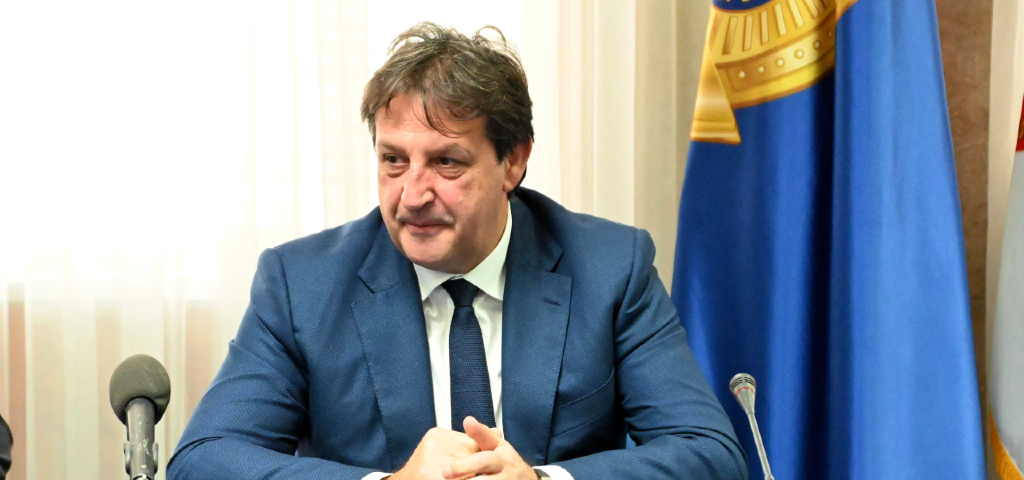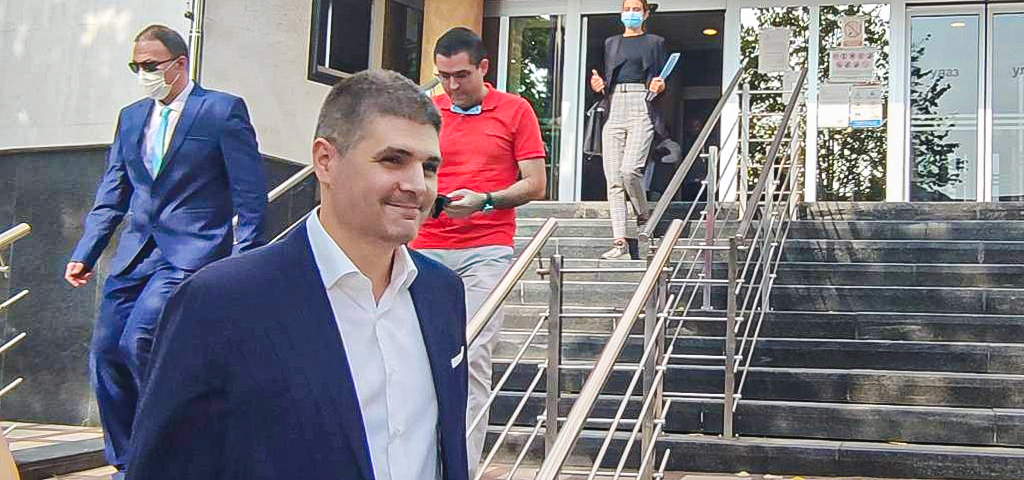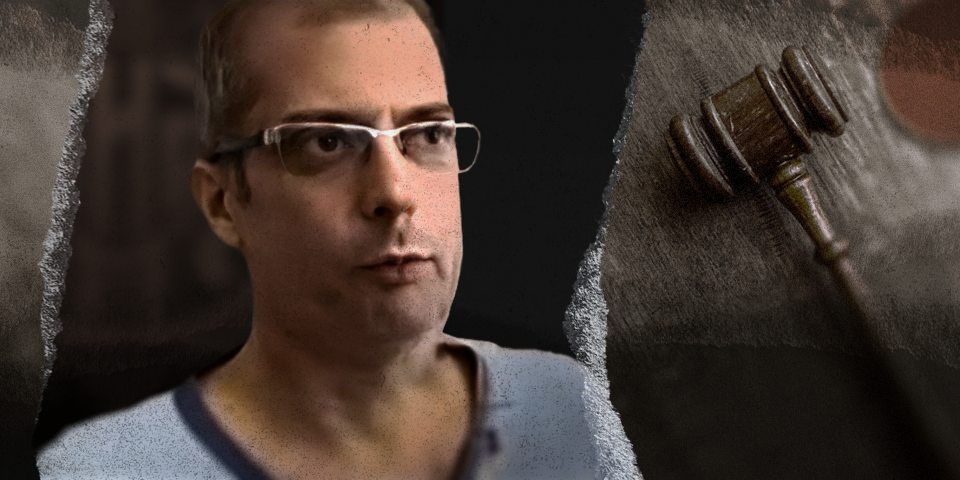Details of the verdict against KRIK: the privileged officials
Details of the verdict against KRIK: the privileged officials

The verdict against KRIK has one major controversy: it does not question the veracity of the wiretapped conversation that the journalists published, it is also claimed that journalists have the right to explain things to their readers – but at the same time the KRIK’s editor and its journalist were convicted precisely because they explained to the readers the meaning of the expression “on the cauldron” that was used in the said conversation. The more scandalous part of the verdict is that the fact that Bratislav Gašić is an official is taken as an aggravating circumstance against the journalists – instead of being the other way around.
Author: Stevan Dojčinović
What is immediately noticed in the verdict is the relationship that Judge Nataša Petričević Milisavljević has towards state officials. For her, as it can be inferred from the verdict, they are privileged citizens who enjoy greater protection from the court.
But it should be the other way around: the citizens let officials run the country and as such they must constantly be under the scrutiny of the media and citizens, ready for criticism and negative articles. The fact that Bratislav Gašić headed one of the most important state agencies, the Security Intelligence Agency (Serbian: BIA), and that he is one of the influential people of the ruling party, however, was taken as an aggravating circumstance against the journalists in this verdict.
It is stated in the verdict that KRIK’s article “represents information capable of injuring the honor and reputation of the plaintiff, taking into account first of all the function he performs, which presupposes the fight against organized crime.”
The privileges that Gašić as an official has before the court are also mirrored in the amount of the compensation awarded to him for pain and suffering – one hundred thousand dinars (approximately 850€). This kind of compensation is about the maximum awarded to “simple mortals” for more brutal cases, that is, the media campaigns against them.
Let me compare it with some personal examples: I was awarded a similar compensation when the newspaper Informer ran a campaign against me for a week, during which it published dozens of articles where, with the worst lies, I was labeled as a “mafioso”, a “spy”, a “sado-masochist”, a “terrorist”. When Aleksandar Vulin’s party as well published the worst lies about me for almost a week – that I was a drug addict, an enemy of the country, and so on – it was also adjudged that I be paid one hundred thousand dinars.
So, the court equalizes the amount of someone’s pain inflicted by the brutal firestorm that the tabloids create by telling lies about professional and private life, with how shaken the head of a powerful state agency is when journalists publish a trial report mentioning him.
This court’s opinion on Gašić’s position is undemocratic and stifles the freedom of the media, however it is not surprising considering the autocratic character of our regime and the underdevelopment of the judiciary system. Leading politicians are seen as those above our citizens, most of the media and institutions adulate them, and the judiciary system is no exception.
In this kind of context, it is important to mention one more thing: judge Petričević Milisavljević’s husband is a long-time friend of Nikola Selaković, one of the leading people of the ruling Serbian Progressive Party (Serbian: SNS), which has been attacking and demonizing KRIK for years. Therefore, the question rightfully arises as to whether she is the right person to judge in this proceeding.
“On the Cauldron”
The center of the whole case is the published wiretapped conversation of the criminals in which they talk about Bratislav Gašić.
What is interesting is that the judge does not dispute the authenticity of the conversation that we published in the article.
“The content of the wiretapped conversations that were heard as part of the evidentiary proceedings at the trial was accurately conveyed,” says the verdict.
Petričević Milisavljević does not even dispute the journalists’ right to publish that conversation, as well as the right to explain it to readers, that is, to interpret it. However, this is precisely why we were convicted.
This, along with the treatment of Gašić’s position, is the biggest controversy of this verdict – the judge does not give clear and consistent interpretations of what journalists may or may not do.
To clarify, I will start with a quote from this conversation, which no one questions. The sentence that the criminal, a member of Zoran Jotić Jotka’s group, said in the wiretapped conversation is the following:
“Who’s going to kill him?” Well, Bratislav Gašić is “on his cauldron”. There’s no one to kill him.”
This was said after Jotić survived assassination attempt. If for a moment we set aside the expression “on the cauldron”, it is clear from the rest of the conversation that Jotić’s associate explains to his interlocutor that his boss does not have to worry about his life because he has the protection of a powerful man – Bratislav Gašić.
So regardless of the interpretation of the expression, the conversation that was published, which in the end was not contested by Gašić himself, has a very dark connotation and nothing nice was said about Gašić.
The expression “on the cauldron” is not just a mafia slang, but an expression that has been used for quite a long time in everyday speech, at least since the First World War (which can also be established by an internet search) and has a commonly known meaning – when you are “on someone’s cauldron”, it means that this person feeds you, supports you, finances you.
No other interpretation of the expression is known, except the literal one, but from the context of the conversation it is clear that the criminal did not want to say that Gašić went to Jotka’s for dinner – which would also be a problem considering that he was the head of the Security Intelligence Agency at the time.
At the trial, we also asked Gašić what other interpretation of the expression “on the cauldron” exists – to which he did not have an answer. He only said: “You have already made up your mind about it, and I don’t want to explain.”
Even the judge did not offer any other interpretation in the verdict, but she still condemned us because we clarified in the article this term for the readers – that is, we translated it from jargon into normal language.
It is especially strange because the judge refers to the journalists’ right to convey facts and events from the courtroom and to interpret them to the readers in several places in the judgment, but apparently, in her opinion, this does not apply in this case.
“It is true that a journalist has the right to interpret the published information when reporting from a trial, but the interpretation cannot be such as to represent the publication of harmful information,” wrote judge Petričević Milisavljević.
“The information published this way and in this particular case represents a journalist’s interpretation, even though the journalist’s task is to faithfully convey the information from the trial they are attending and not to interpret the presented evidence,” the judgment also states.
It is not clear which point of view the judge advocates: journalists may or may not interpret information from the trial? Let me remind you that the ban on journalists explaining to readers the things they write about and thus making them comprehensible to the widest audience is an invitation to self-censorship.
The judge specifically addresses the title of the article and shows either a lack of understanding of journalistic work or malice. She was surprised that, given that the article is extensive and that other people are also mentioned in it, we mentioned Gašić in the title.
“Put this way, the title goes beyond the usual scope of attracting the reader’s attention, especially considering the content of the entire relatively extensive article, which also talks about other persons without mentioning their names, and considering the duration of the wiretapped conversation itself, while the title only emphasizes the plaintiff”, the verdict states.
What the judge holds against us is, in fact, the essence of journalistic work – the most important information is published in the headline, and that day at the trial there was nothing else that could compare to the fact that the director of the intelligence agency was mentioned in the context of criminal ties.
The Unfair Trial
Judge Petričević Milisavljević acted as if she were prosecuting KRIK – in the verdict she presented only details that she considered to be our mistakes, and she left out many things that were in our favor. First of all, in the verdict, she did not explain how much we tried to comply with all the rules of the profession, and above all, to give those we mentioned in the article an opportunity to answer, specifically to Gašić.
In fact, the article about Gašić was not a research story taking months to complete, but news that needs to be published that same day – for the sake of readers who need to receive current and new information, and also for the sake of competition, that is, the other media that will publish the same news.
Journalists reporting from trials cannot always call all the people who are involved and mentioned in a court proceeding – if they were to do that, they would have to call up to 50 people every day, if it is a trial for organized crime. It is simply impossible.
The practice, in Serbia and everywhere in the world, is to convey exactly what happens in the courtroom, as well as to give the readers an explanation, a context.
This time, however, we made an exception. Precisely because of the sensitivity of the topic, we decided not to publish the article immediately, but tomorrow morning – so that the colleague Milica Vojinović, who followed the trial and wrote the news, would try to reach Gašić and ask him for a comment. We did this to be fair to him, which he certainly cannot understand considering that he works in an environment used to the media not being allowed to write a mere bad information, but being however allowed and preferred to publish eulogies.
Milica spent the whole day trying to get a comment from him – she wrote to the Security Intelligence Agency, called the cabinet, called his companies and his son’s companies, and there was no answer that day. We published the news tomorrow morning and she kept calling. She finally got Gašić on the phone and he only said that he had nothing to talk to her about.
He never sent a denial after that. Even in court, he did not deny that he knew Jotić, but did not want to answer that question.
The fact that we made an effort to enable Gašić to comment on the case was not a mitigating circumstance in our favor. On the other hand, the fact that he did not want to explain these things to the public, even though he is an official who is obliged to do so, was not an aggravating circumstance for him.
Even earlier, during the proceedings, we had a sense of what verdict Petričević Milisavljević would reach.
It was evident from her attitude in the courtroom. We were prevented from presenting the defense in the way we had planned.
The judge did not allow me, nor our lawyer, to ask Gašić questions about whether he knows Jotka and his associates, since when, what kind of relationship they have, and whether they were at the same time in the same restaurant owned by Gašić’s brother the evening Jotić was arrested.
She also rejected our proposal to listen to the wiretapped phone conversation we quoted in the news as evidence. She did not even approve our proposal to hear Jotka.
Even from her non-verbal behavior, you could tell whose side she was on – she rolled her eyes while we were testifying, while she was extremely polite towards Gašić.
The trial ended very quickly for domestic conditions, which was also a bad sign. Only two hearings were enough for her to reach the verdict – one of which was preparatory, and the other in which Gašić, Milica and I gave our statements.
We now have eight days to appeal the verdict, which we will definitely do.
Such a verdict of Petričević Milisavljević can hardly be reviewed by the Appellate Court. However, given the circumstances in which we are being tried, the whole thing will be uncertain to the very end.



